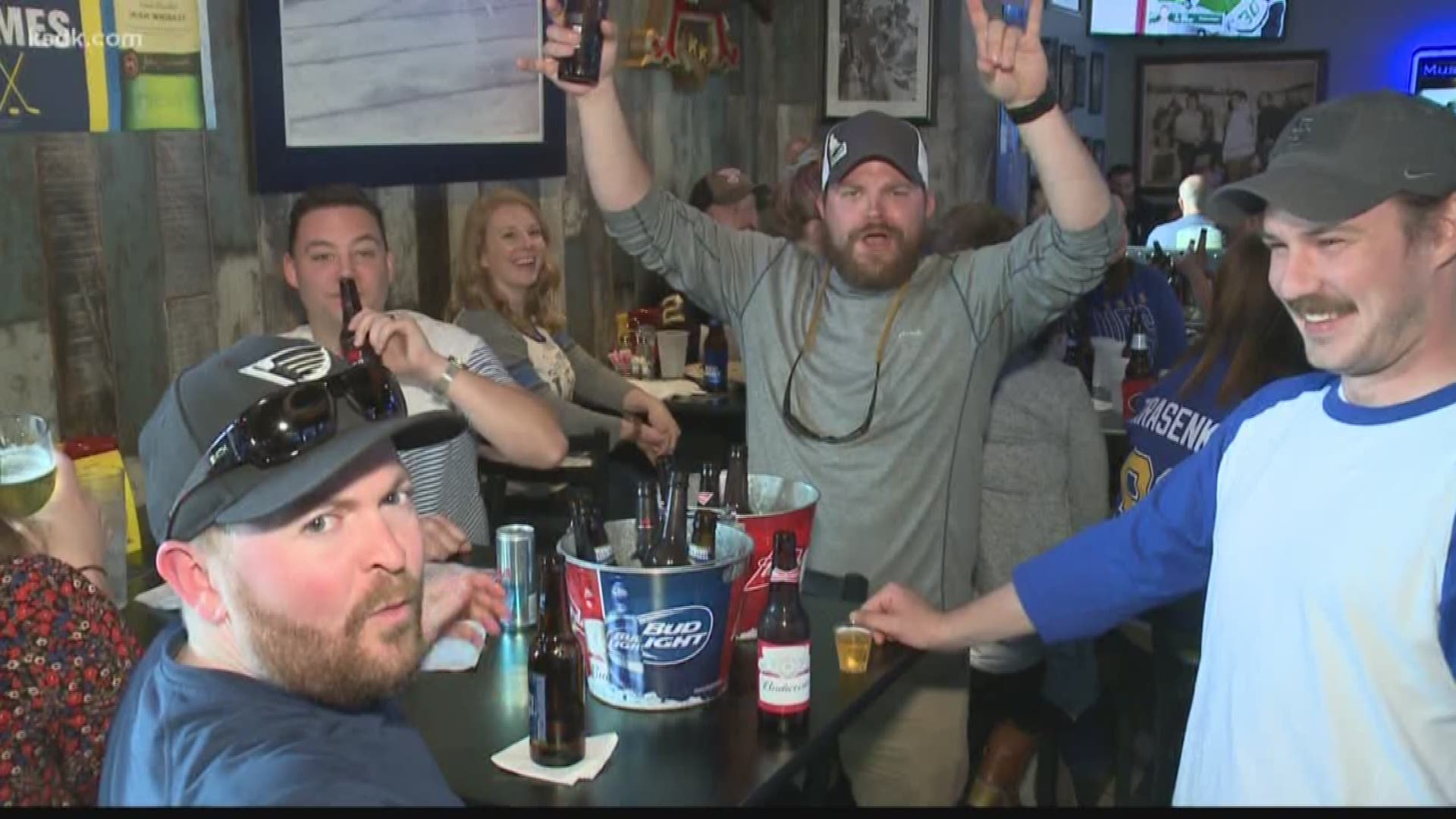ST. LOUIS — Blues and Stars.
Two one-goal games, split in St. Louis.
Identical scores: 3-2.
It’s a best-of-five series now, and Dallas has the home-ice edge with potentially three home games.
RELATED: Missouri, Illinois Blues fans can’t buy tickets to see the Blues in Dallas through Ticketmaster
Can you gauge the outcome of a series by who wins Game Three? In terms of momentum, the teams are pretty even. In that case, I’d say no.
So what about the math? Can analytics play a part in determining whether we should feel good about the Blues winning the series?
According to Hockey-Reference.com, the visiting team that wins Game Three and takes a 2-1 series lead has won 71.7 percent of the time. The sample size is 159 occurrences in Stanley Cup playoff history, so it’s not random.
Digging a little deeper, the biggest percentage of those wins come in Game Five. So if the Blues win Monday night, there’s a 28.3 percent chance they’ll go on to clinch the series at Enterprise Center on Friday. The odds decrease with each succeeding game: 22.6 percent end in a Game Six win, and 20.8 go the distance.
Now to the other side of the ledger – we don’t want to invite a Blues loss tonight but in fairness we have to look at that possibility, right?
Home teams that go on to win game three and go up two-to-one go on to win the series 63.1 percent of the time. That scenario has played out 168 times.
Again, six games is the most likely scenario for the series to end; in this case the home team wraps up the series in six 31% of the time.
So there is some significance to Monday night's game, other than to say it’s just another game in the series.
For the record, this series with the Stars is the 70th playoff series in the 52-year history of the Blues franchise. Impressive, right?
Of the six original expansion teams from 1967 it’s as many series as the Pittsburgh Penguins have, and only the Philadelphia Flyers have more (80).
What lurks beneath the surface is that the Blues have only won 28 of those previous 69 series (41%), while the Flyers (54%) and Penguins (58%) have been more successful. And more painfully, the Blues are the only one of the five teams still in existence (We see you, Oakland/California Golden/Seals) that don’t have a Stanley Cup in their past.
Enough of that. Back to the present.
Here are the questions I’m asking heading into tonight:
- Which of the Blues’ core players will take a big role? Vladimir Tarasenko dominated Game One, and Jaden Schwartz has been a presence in the past three games. Ryan O’Reilly comes to mind: he’s playing at a -4 plus/minus rate. His faceoff winning percentage is down, too. He was 56% in faceoffs during the regular season, and is now down to to 51% in the playoffs. He hasn’t played in the postseason in five years – maybe the bumps and bruises of amped-up intensity are taking a toll. He’s proven he’s the team’s MVP all season; let’s hope he’s poised for a breakout. He had a great scoring chance that would have tied the game Saturday, but Pat Maroon’s pass hit the heel of his stick and Ben Bishop stopped the shot. Here’s a stat to lean on, though: after losing 14 of 20 draws in game two he turned it around and won 8 of 14 in the third period. Winning faceoffs lead to puck possession, which leads to scoring chances, etc.
- Can the Blues get off the razor’s edge? They’re the only team still alive that has a cumulative minus goal differential (-1); this, despite a 5-3 overall record. That’s a lot of close games.
- What will the Blues do to readjust to the Stars’ Game Two adjustment? Success in a playoff series comes down to who makes the best, and actually, last adjustment. Sort of like the battle between pitcher and hitter in baseball, if you stay with one course you’ll soon become obsolete. No doubt the Stars’ staff watched video from Game One and found a way to make quick-strike passes against the Blues’ defense, leading to odd-man rushes and advantages in the Blues’ zone. So how do the Blues now counteract that maneuver?
Blues coach Craig Berube said it after game one the the Blue would have to be better in the next game, and they weren’t. So expect that the coach has re-emphasized the need to be quick and heavy – relentless – in forcing turnovers, in getting possession and keeping possession.
The man they call Chief turned the season around with emphasis on puck possession and not giving it away – he has re-stated that purpose a few times since January and each time the team has responded with renewed vigor.
The teams have broken even through two games. Let’s see how The Power of Three plays out for Game Three.

